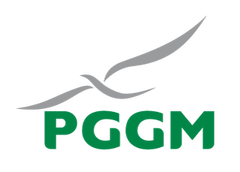
November 2021
Annual Progress Report Metals 2020-2021
Lessons learned and bottlenecks
At the end of each year, parties look back and try to identify lessons learned and bottlenecks encountered in the implementation of the Agreement obligations. Some areas marked for improvement include the sharing of information and collaboration between parties.
One of the objectives of the Agreement is to collectively address RBC risks that one party cannot address on its own. Parties have been meeting and working together in working groups but knowledge sharing and collaboration amongst companies and between companies and civil society organisations seem limited so far. Next year, parties will seek to strengthen collaboration by, for example, asking for assistance, communicating on knowledge and expertise in the form of bilateral consultations or in a broader knowledge session.
For the working group on sustainable secondary materials supply chains, the assessment and development of due diligence tools tailored to the specificity of recycling companies are paramount if they are to make improvements in their due diligence processes. It was also learned that some research into existing legislation on recycled metals and on the international supply chain of secondary metals flowing in and out of the Netherlands and European Union was necessary before embarking on a project to map the supply chain and develop a plan of action.
Although a lot of time and resources were directed towards outreach and a lot of interest shown in the Metals Agreement, getting new companies to sign has proven to be more of a challenge. It is clear that expanding the Metals Agreement continues to be a priority and essential for its implementation. All parties must put their weight behind the outreach strategies approved by the working groups and by the steering committee.
Gerard Roest, FNV-bestuurder, lid stuurgroep

Cedric Scholl,
PGGM Adviser on Responsible Investment
“Trade unions, the Government, NGOs, and pension funds jointly developed the Toolbox during the first year of the Agreement on International Responsible Investment. I’m proud of the result. The Toolbox contains model texts and a detailed explanation of the provisions of the Agreement. We have managed to strike a balance between detail and practical applicability. To further assist pension funds in using the Toolbox, we have already scheduled two knowledge sessions for 2020.”